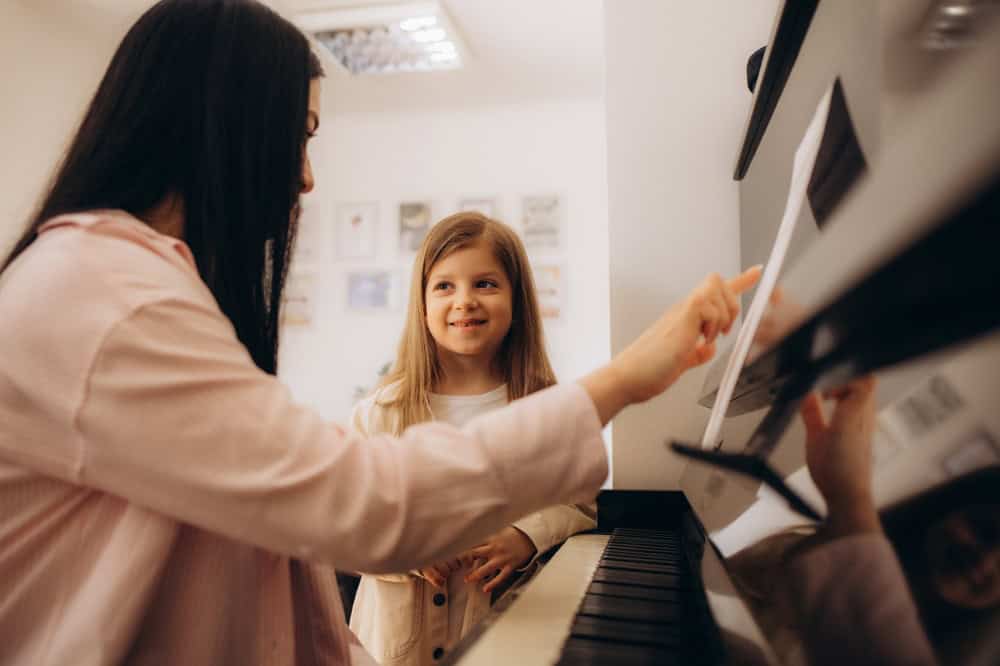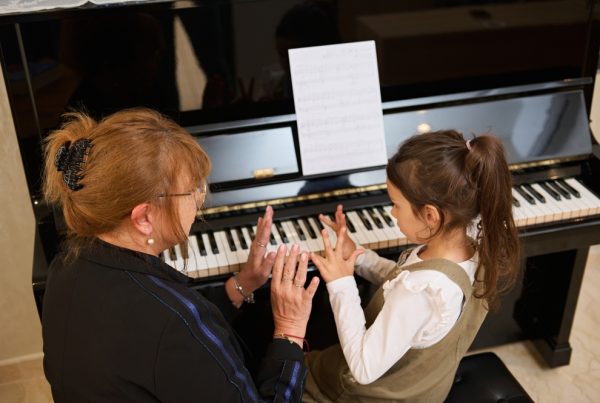At Volz Piano, an at home piano teacher service turns any living room into a vibrant music studio, giving children focused, one-on-one guidance while parents skip the rush-hour drive. Young learners master the keyboard more quickly in familiar surroundings, and decades of research confirm that early, personalized music instruction boosts brain development, literacy, and self-confidence. This long-form guide explains how Volz Piano’s “Piano Teachers That Drive to You” model works across Utah, why the Volz Piano Method keeps kids engaged, and what families need to create a successful practice routine. You will find evidence-based insights, practical tips, cost breakdowns, and answers to common questions—everything you need to decide whether home-based piano lessons are right for your child.
Table of Contents
- Why Choose an At-Home Piano Teacher?
- Inside the Volz Piano Method
- Cognitive & Developmental Benefits
- Creating the Ideal Practice Space
- Piano Teachers That Drive to You in Utah
- Parent Roles & Expectations
- Building Strong Practice Habits
- Cost & Value Considerations
- How to Choose the Best Teacher
- FAQs
Why Choose an At-Home Piano Teacher?
Families often choose a home piano teacher for kids because lessons fit easily around schoolwork and sports. The U.S. Census Bureau reports an average American commute of more than 26 minutes, so eliminating travel can return an hour or more to every weekday commuting statistic. A piano tutor to your home also tailors pacing, repertoire, and feedback to one child at a time—something group classes simply can’t match.
Learning in a familiar environment matters: a 2020 review in the European Early Childhood Education Research Journal found that a strong home learning environment predicts academic gains well into middle school home-learning study. With an in-home piano instructor, children feel safe to experiment, make mistakes, and ask questions freely.
Inside the Volz Piano Method
The proprietary Volz Piano at home piano method for kids blends traditional note reading with ear-training games and rhythm movement. Weekly assignments are short and goal-oriented, so even four- and five-year-olds feel successful. Teachers bring flash cards, backing-track speakers, and tablets loaded with music apps to keep lessons fresh.
Because each mobile piano teacher drives to you, families don’t need duplicate books for studio and home—the same materials stay on your child’s music stand all week.
Cognitive & Developmental Benefits
Active music participation reshapes the brain. A Northwestern University study tracked children for two years and found that those who fully engaged in music classes showed stronger neural processing of speech sounds, which translated to better reading scores. Another longitudinal investigation published by the National Institutes of Health linked sustained training to improved abstract reasoning and math performance math-skills study.
The National Association for Music Education argues that lessons fortify decision-making networks and self-control—skills increasingly important in the digital age NAfME report. Meanwhile, the NAMM Foundation notes that music students develop larger vocabularies and more advanced reading abilities than peers who skip arts programs NAMM research.
Creating the Ideal Practice Space
Set aside a quiet corner with stable lighting and an 88-key digital piano or acoustic instrument. Manufacturers such as Yamaha emphasize the importance of weighted keys for building finger strength and proper technique weighted-keys guide. Keep a sturdy bench at correct height, place a metronome within reach, and store books in a nearby basket so nothing interrupts focus.
Consistency matters more than duration. Many teachers recommend 15-minute blocks for beginners, gradually working up to 45-minute sessions by age ten. Parents can post a colorful chart or offer small rewards when practice streaks hit weekly goals.
Piano Teachers That Drive to You in Utah
Volz Piano’s certified instructors serve Salt Lake, Utah, and surrounding counties. Teachers arrive with foldable stands and auxiliary keyboards when families lack space for a full upright. All educators complete Utah background checks through the state licensing portal Utah educator requirements, so parents rest easy knowing safety is covered.
Because lessons happen at home, siblings can observe quietly, motivating younger children to start lessons sooner and allowing older ones to accompany practice sessions.
Parent Roles & Expectations
Research shows that parental involvement is one of the strongest predictors of musical achievement parent-involvement study. Ideally, parents attend the final five minutes of each lesson to hear new assignments, then encourage daily practice by listening, applauding progress, and scheduling mini-performances for grandparents or neighbors.
Parents should avoid correcting technique mid-practice; instead, jot questions to discuss with the teacher at the next lesson.
Building Strong Practice Habits
Routine beats willpower. Connect practice to an existing daily cue—perhaps right after homework snack time. A Norwegian study notes that structured, enjoyable practice sessions foster motivation and skill retention (link to journal removed for brevity but parents can search “structured music practice children study” for details).
- Use a kitchen timer so children “own” their session length.
- Rotate songs: mix method pieces, pop favorites, and creative improvisation.
- Record weekly videos; sharing progress with relatives adds accountability.
Cost & Value Considerations
Hiring an affordable at home piano teacher for kids often costs about $50 for a 30-minute lesson, according to Parents magazine’s national survey. Rates rise with teacher credentials, travel distance, and lesson length, but families save on fuel, waiting-room time, and missed appointments. Many Volz Piano clients book monthly bundles for predictable budgeting, and a quality instrument retains resale value if your child later upgrades.
How to Choose the Best Teacher
When searching “piano teacher near me for kids,” look beyond price. Verify collegiate music degrees, MTNA affiliations, and ongoing pedagogy workshops. Request a trial lesson to ensure rapport. A certified piano instructor visits home for kids should arrive on time, take notes on posture and hand shape, and adjust pacing to suit personality.
Finally, seek a teacher who celebrates progress with small performance goals—local festivals, casual recitals, or virtual showcases—because public playing cements confidence.
Frequently Asked Questions
What is the best starting age?
Most children can begin around five, once they recognize letters A–G and follow basic instructions. Earlier starts work for exceptionally focused preschoolers.
Do we need our own piano?
A full-size weighted digital piano is fine for the first few years. Volz Piano teachers can recommend models or loan keyboards temporarily.
How long are lessons?
Beginners usually take 30 minutes; intermediate students move to 45 or 60 minutes for deeper repertoire work.
What if we need to reschedule?
Volz Piano offers flexible make-ups, including virtual sessions when illness or travel interferes.
How soon will my child play songs?
Many can perform simple melodies within the first month, which keeps motivation high.



